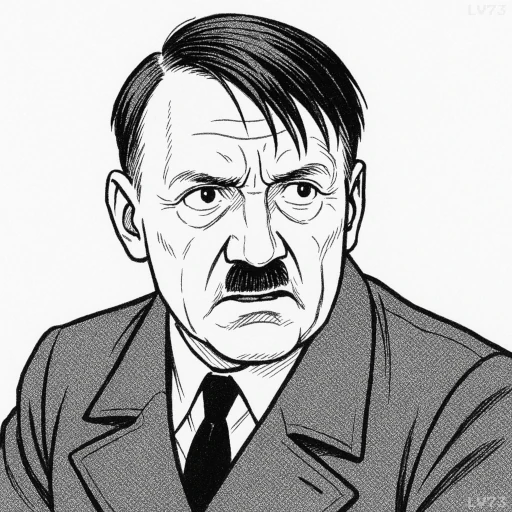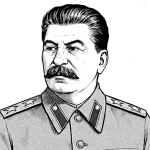“Sooner will a camel pass through a needle’s eye than a great man be ‘discovered’ by an election.”

- April 20, 1889 – April 30, 1945
- Born in the Austro-Hungarian Empire
- Political leader of Nazi Germany
table of contents
Quote
“Sooner will a camel pass through a needle’s eye than a great man be ‘discovered’ by an election.”
Explanation
In this quote, Adolf Hitler expresses his belief in the inadequacies of democratic systems, particularly in the context of elections. He suggests that the process of selecting leaders through popular vote is fundamentally flawed, implying that a truly great man, someone with exceptional vision or capability, will rarely, if ever, be chosen through this method. The use of the metaphor, “a camel passing through a needle’s eye,” emphasizes how unlikely it is for such individuals to rise through democratic means, which he views as too constrained or superficial to recognize true greatness. This perspective aligns with Hitler’s authoritarian beliefs, where he favored a system of leadership based on strength, charisma, and absolute control, rather than one based on voting or public opinion.
Historically, this quote reflects the Nazi regime’s rejection of the Weimar Republic’s democratic processes, which Hitler believed were weak and ineffective. He argued that a nation’s leader should not be subject to the will of the masses but should emerge as a strong and decisive figure capable of leading with authority and vision. Hitler, in contrast to democratic leaders, saw himself as a leader destined to guide Germany, not through the process of election, but through his ideology and personal power.
In the modern context, this quote serves as a cautionary statement about the dangers of authoritarianism and the dismissal of democratic values. While it is true that elections can sometimes overlook capable leaders, the idea that democracy is inherently incapable of selecting a “great man” can be dangerous. It can fuel the belief that power should be concentrated in the hands of a single leader, undermining democratic institutions and checks and balances. In a well-functioning democracy, leaders should be selected based on principles of fairness, justice, and the will of the people, and it is important to recognize that collective decision-making fosters accountability, even if it does not always elevate the “greatest” individuals according to one’s personal standards.
Would you like to share your impressions or related stories about this quote in the comments section?


